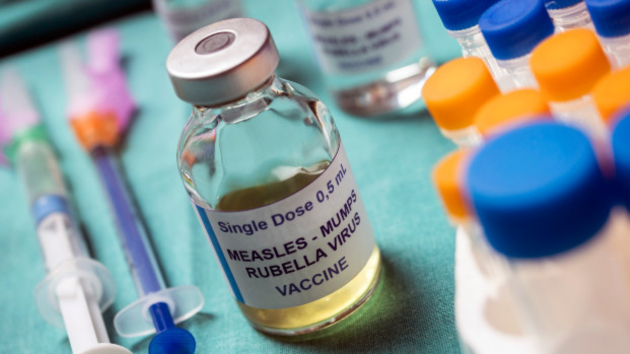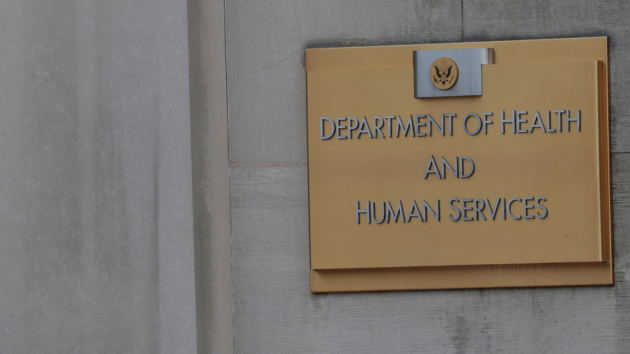As US reels from Tyre Nichols video, what makes people act violently as a group?
Written by ABC Audio ALL RIGHTS RESERVED on February 3, 2023

(NEW YORK) — Many were stunned when videos were released of Tyre Nichols, a 29-year-old Black man, being beaten to death by five Memphis police officers during a traffic stop.
Officers pulled Nichols from his car on Jan. 7, pepper sprayed him and used a taser, the footage shows. He managed to flee, but the officers caught up with him and held him on the ground as they punched and kicked him in the head and hit him with a baton, according to the video that was released last week.
Seven Memphis police officers have been relieved of duty, with the five involved in the beating charged with murder. Additionally, three Memphis Fire Department personnel were fired.
While it’s unclear what motivated the officers to act in that way, psychologists and other social experts told ABC News some people act differently in groups than when they are alone and may participate in group-based violence because of it.
Police may misperceive someone as a threat
George Smith, director of outpatient group therapy at McLean Hospital — a psychiatric hospital in Belmont, Massachusetts — said police group violence might be different from other forms of group violence because they may act when they view someone as a threat.
“I was just thinking about the five police officers, and they may have believed that there was an actual threat, either to the community or to themselves,” he told ABC News. “Thinking this person is a menace to the community, and we need to do something to protect humanity from this genuine threat, or it may be that they believe that this person was a threat to one of them.”
“And when that happens, your good judgment can go completely out the window,” he added.
Smith said the person police officers might think to be a threat could be completely innocent, but the violence can still occur anyway.
“Even in a more benign situation, when a traffic cop pulls somebody over, it may be a completely innocent person whose taillight was out,” he said. “But they don’t know if this person has a weapon in their glove compartment so there’s this unnatural tendency for them to get adrenalized and to approach the situation in a more belligerent way than was warranted.”
Wanting to feel part of a group
Experts told ABC News wanting to belong to a group is nothing new and extends from wild animals running in a pack to humans wanting to affiliate.
While joining a group may have been necessary for survival in prehistoric times, it is now for developing a sense of camaraderie and belonging, experts said.
“As people are part of a group, they start to feel identified with this group, they feel like it’s an important part of who they are, they might even come to define themselves in terms of being a member of a group,” Dr. Rebecca Littman, an assistant professor in the department of psychology at the University of Illinois Chicago, told ABC News.
“There’s different kinds of groups, some that are based on the premise of violence and others that are not,” she continued. “So, you feel like you’re very identified with this group, you want to be a good group member, you want to get along with everyone else. And that can lead kind of ordinary people who generally in their individual lives would never end up participating in violence.”
Those same people, even though they know violence is wrong, may still participate because they’ll feel shunned by the group if they don’t.
“People are afraid of losing a social status, particularly when it’s a group that they really care about,” said Littman, who has studied why people participate in group-based violence. “They don’t want to be ostracized or, even just in a less extreme form, they don’t want to be seen as the odd person out.”
Dr. Vivian Zayas, a professor in the department of psychology at Cornell University in New York, said if a person starts to go against what the group thinks, they might be seen as undermining the group.
“Strategically, there are consequences to people who don’t work well in a group,” Zayas told ABC News. “They can be left out of the group, they can be left out of decision-making, they can be marginalized, they could lose power and status. Those sorts of social punishments can be used to silence differing opinions.”
Groups can normalize violent behavior
Research has shown that people’s thoughts and actions are often influenced by how those around them think and act.
If a group normalizes a behavior, even if that behavior is bad — such as violence — then we might believe that behavior is acceptable.
“What can happen is that this group is creating this new set of social norms. Maybe in this group, we’re often in situations where we feel a lot of threat and we have to protect ourselves, and the way we protect ourselves is violence,” Littman said.
“So, you can kind of see how that violence in particular groups can become normalized in a lot of different ways and make people either themselves genuinely feel like it’s okay or at least feel like this is what is normal in my group,” she added.
Leaders can influence behavior
The experts told ABC News that because we are influenced by leaders — and leaders set examples for the group — if the leader believes in bad behavior, the group may follow.
“If that person has status in that group and if they’re saying that the behavior is appropriate for group members — even if initially, someone thought that the behavior is problematic — they might feel that or come to think that it’s more appropriate,” said Zayas.
Zayas added that someone in the group might also see that the leader was elevated by engaging in problematic behaviors and wasn’t punished or reprimanded so they think they can also engage in the behavior without getting in trouble.
Reports have emerged that Memphis Police Chief Cerelyn Davis adopted a “tough on crime” strategy when she took on the role.
Part of that included launching the SCORPION unit, which stands for Street Crimes Operation to Restore Peace in Our Neighborhood, of which the five officers were members. Activists and residents have said members of the unit used excessive force. The unit has since been disbanded.
“The process of listening intently to the family of Tyre Nichols, community leaders, and the uninvolved officers who have done quality work in their assignments, it is in the best interest of all to permanently deactivate the SCORPION Unit,” a statement from the department read.
This doesn’t mean that Davis advocated the use of violence nor that she encouraged her officers to be violent, but the officers may have felt they were fulfilling her mission, experts said.
“So, it became part of a shared mission and when you get that mission, and there’s buy-in, because you’re part of a group that believes this mission,” Smith said. “One’s ability to discern whether it actually is a perceived threat can get totally overshadowed by this belief that we together are saving the community from these threats that are out there.”
In a video posted on Jan. 26, Chief Davis condemned the officers’ actions and called the circumstances surrounding Nichols’ death “horrific.”
“I am not wavering in my commitment to you to have a police force that is here to serve and protect you,” she said. “Those five officers and others failed our community and they failed the Nichols family and that is beyond regrettable.”
Copyright © 2023, ABC Audio. All rights reserved.
 KVSP
KVSP 




